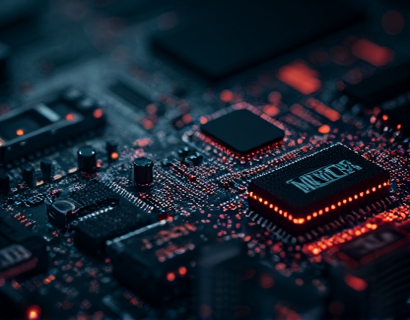AI-Powered Agent Revolutionizes Aeronautics: Streamlining Operations and Enhancing Decision-Making for Industry Professionals
The aeronautics industry is undergoing a significant transformation, driven by advancements in artificial intelligence (AI) technology. As industry professionals seek innovative solutions to optimize operations and enhance decision-making, AI-powered agents are emerging as a game-changer. These intelligent systems are designed to streamline processes, improve efficiency, and provide actionable insights tailored to the unique challenges faced by the aeronautics sector. In this article, we will explore how AI-powered agents are revolutionizing aeronautics, the benefits they offer, and the future of AI in this critical industry.
The Role of AI in Aeronautics
AI technology has the potential to reshape various aspects of the aeronautics industry, from design and manufacturing to operations and maintenance. By leveraging machine learning algorithms, data analytics, and automation, AI can enhance the capabilities of industry professionals, enabling them to make informed decisions quickly and efficiently.
1. Enhancing Design and Manufacturing Processes
In the design phase, AI-powered agents can analyze vast amounts of data to identify patterns and trends that inform design decisions. This capability allows engineers to create more efficient and innovative aircraft designs. Additionally, AI can optimize manufacturing processes by predicting equipment failures, reducing downtime, and improving overall production efficiency.
2. Streamlining Operations
AI agents can significantly streamline operations within the aeronautics industry. For instance, they can automate routine tasks such as scheduling, inventory management, and compliance checks. By automating these processes, industry professionals can focus on more strategic initiatives, ultimately leading to improved operational efficiency.
3. Enhancing Decision-Making
One of the most significant advantages of AI-powered agents is their ability to provide real-time data analysis and insights. By processing large datasets quickly, these agents can identify trends and anomalies that may not be immediately apparent to human operators. This capability enhances decision-making by providing industry professionals with the information they need to make informed choices in a timely manner.
Benefits of AI-Powered Agents in Aeronautics
The integration of AI-powered agents into the aeronautics industry offers numerous benefits that can help businesses stay competitive in a rapidly evolving landscape.
1. Increased Efficiency
AI agents can automate repetitive tasks, reducing the time and effort required to complete them. This increased efficiency allows industry professionals to allocate their resources more effectively, ultimately leading to cost savings and improved productivity.
2. Improved Safety
Safety is a top priority in the aeronautics industry. AI-powered agents can analyze data from various sources, including sensors and maintenance logs, to identify potential safety risks. By proactively addressing these risks, businesses can enhance safety protocols and reduce the likelihood of accidents.
3. Data-Driven Insights
AI agents excel at processing and analyzing large volumes of data. This capability enables them to provide actionable insights that can inform strategic decision-making. By leveraging data-driven insights, industry professionals can make more informed choices that drive innovation and growth.
4. Enhanced Customer Experience
In the competitive aeronautics market, providing an exceptional customer experience is crucial. AI-powered agents can analyze customer feedback and preferences, allowing businesses to tailor their services to meet customer needs. This personalized approach can lead to increased customer satisfaction and loyalty.
Challenges and Considerations
While the benefits of AI-powered agents in aeronautics are significant, there are also challenges and considerations that industry professionals must address.
1. Data Privacy and Security
As AI agents rely on vast amounts of data, ensuring data privacy and security is paramount. Businesses must implement robust security measures to protect sensitive information and comply with regulations.
2. Integration with Existing Systems
Integrating AI-powered agents with existing systems can be complex. Businesses must ensure that their current infrastructure can support AI technology and that employees are trained to work alongside these intelligent systems.
3. Ethical Considerations
The use of AI in aeronautics raises ethical considerations, particularly regarding decision-making processes. Industry professionals must ensure that AI systems are transparent and that their decisions can be understood and justified.
The Future of AI in Aeronautics
The future of AI in the aeronautics industry is promising, with continued advancements expected to drive further innovation. As AI technology evolves, we can anticipate the following trends:
1. Increased Automation
Automation will continue to play a significant role in the aeronautics industry. AI-powered agents will take on more complex tasks, allowing industry professionals to focus on strategic initiatives and innovation.
2. Enhanced Predictive Analytics
AI agents will become increasingly adept at predictive analytics, enabling businesses to anticipate trends and make proactive decisions. This capability will be particularly valuable in areas such as maintenance and supply chain management.
3. Collaboration Between Humans and AI
The collaboration between humans and AI will become more seamless as technology advances. Industry professionals will work alongside AI agents, leveraging their capabilities to enhance decision-making and drive innovation.
Conclusion
AI-powered agents are revolutionizing the aeronautics industry by streamlining operations and enhancing decision-making for industry professionals. The benefits of increased efficiency, improved safety, data-driven insights, and enhanced customer experience are driving the adoption of AI technology in this critical sector. While challenges such as data privacy, integration, and ethical considerations must be addressed, the future of AI in aeronautics is bright. As businesses continue to embrace AI solutions, they will be better equipped to navigate the complexities of the industry and drive innovation in a rapidly evolving landscape.










































